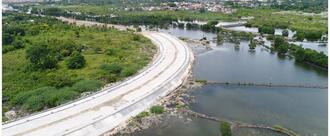-
STOP THE SINKING OF BULACANWe sign this petition because this is not politics — this is survival. Because development should not drown entire provinces. Because our children deserve dry homes, clean water, and a future. Before more towns disappear under water — act now.463 of 500 SignaturesCreated by Bulacan Coastal Watch

-
The Sierra Madre Covenant: It is NOW Our TurnThe Call for Protection The tragedies in our archipelagic neighbors serve as a dire warning we can no longer ignore. Cebu has shown us the unprecedented tragedy of uncontrolled floods, resulting in widespread loss of lives and properties. This reality could soon become our own. We in Luzon have been constantly shielded by the Sierra Madre Mountain Range—a natural fortress that has served as our primary defense against typhoons and the cascading effects of climate change. But this protection has come at a cost. The shield is weakening. Just as we were protected by Her, now it is our urgent turn to protect the Sierra Madre Mountain Range.219 of 300 SignaturesCreated by Protect Sierra Madre Movement
-
For the Future of Bais City, Manjuyod, and Tañon Strait — Support the Filing of a Writ of KalikasanFor generations, the rivers and coasts of Bais City and Manjuyod have given life to our people—from fisherfolk who rise before dawn to families who depend on clean water for food and health. These same waters flow into the Tañon Strait Protected Seascape, home to dolphins, coral reefs, and the famous Manjuyod Sandbar that draws visitors and supports local tourism and employment. Today, that lifeline is threatened. The recent wastewater contamination has clouded not only our seas but also our sense of safety and trust. Fisherfolk worry about their catch; workers and small business owners fear for tourism’s future. Communities along the coast ask, "Will visitors still come if our waters are unsafe?" Filing a Writ of Kalikasan is our way to act—responsibly and lawfully—to protect both nature and livelihood. This is not about blame but about truth, accountability, and recovery. By standing together, we defend not just our seas but also the dignity and future of the people who depend on them.577 of 600 SignaturesCreated by Lloyd Dionson
-
Call for a Temporary Tax Holiday Pending Comprehensive Anti-Corruption ReformsCorruption steals from every Filipino. Every peso lost to corruption could have built a classroom, paid for hospital beds, or provided relief for families in need. Instead, it is pocketed by a few while ordinary citizens continue to shoulder heavy taxes. We are calling for a tax holiday because it is unjust to keep demanding payment from people when the system is failing them. By joining this campaign, you are standing up for fairness, transparency, and accountability. This petition is not just about money — it is about justice and dignity. When we unite, we send a clear message to our leaders: until corruption is seriously addressed, taxpayers will not accept being burdened by a broken system. Together, our voices can push for real change. Sign now and be part of the movement to end corruption and reclaim our future.10 of 100 SignaturesCreated by Catherine Chiong

-
Stop Corruption Now: Demand Transparency and Accountability from Our LeadersCorruption continues to steal billions of pesos from the Filipino people — money that should go to education, healthcare, disaster response, and public infrastructure. Every peso lost to corruption robs citizens of opportunity and dignity. It's time for all of us to take a stand and demand honest, transparent governance. Our future depends on it. 2 of 100 SignaturesCreated by Jest Antaa
-
PROTECT FARMERS, PROTECT BIODIVERSITY: KEEP NEGROS GMO-FREEThe ordinance is our strongest shield in protecting our natural environment, supporting our organic farmers, and securing our future as an organic food Island of the Philippines.695 of 800 SignaturesCreated by Breech Pedrajas
-
STOP the Proposed Mining in Dupax del Norte, Nueva Vizcaya – Protect Our Farms, Rivers, and FutureDupax del Norte, in the heart of the Caraballo Mountains, is blessed with clean rivers, fertile farms, and lush forests that sustain every barangay in our town. Mining will strip our mountains bare, poison our water, and destroy our way of life — just like what happened in Kasibu’s Didipio mine. Once our forests are gone and our rivers run dry, no amount of money can bring them back. We must act now to protect our home, our children’s future, and the lifeblood of Nueva Vizcaya.3,675 of 4,000 SignaturesCreated by Daisy Agungan
-
Protect Biodiversity and Indigenous Land: Stop Palm Oil Plantation in Negros OccidentalProtecting biodiversity and Indigenous land in Candoni, Negros Occidental is crucial not only for the well-being of the local ecosystem, but also for the preservation of the cultural heritage and livelihood of Indigenous Peoples who have cared for these lands for generations. The ongoing palm oil project threatens to destroy critical forest areas, pollute water systems, displace farming communities, and exhibits blatant disregard of the law. These lands are home to unique plant and animal species, many of which may not survive the rapid environmental changes caused by deforestation, soil erosion, and siltation. Moreover, the lack of proper consultation with Indigenous communities violates their rights and disregards their role as stewards of the land. We call on all Negrenses to stand with the people of Candoni by joining our campaign and remaining vigilant in defending our environment and indigenous people. Now more than ever, we need collective action to hold destructive projects accountable and to demand that development respects both ecological balance and human dignity. Let us come together to protect what remains of our forests, rivers, and ancestral domains—for the future of our children, our communities, the people, and the planet.485 of 500 SignaturesCreated by Joshua Villalobos
-
Stand with Filipino Farmers: End Import Dependence Now!Filipino farmers are the backbone of the country. Our country has long since been an agricultural country yet today, we lag behind most countries in terms of production, development, growth, and exports. For years, support on the agricultural sector have been lacking and Filipino farmers have been experiencing poverty. It is up to us to call out those who are accountable and vote for Filipinos who truly show care for the welfare of our farmers. We must prevent exploitation and abuse of our farmers through finding the root causes of their problems in price and production.50 of 100 SignaturesCreated by Karl Benedict Chua
-
Petition for the Installation of Street Lights in New Road, Gabi, CordovaInstalling street lights in New Road, Gabi, Cordova, Cebu is important for several reasons: 1. Safety for Pedestrians and Motorists – Poor lighting increases the risk of accidents, especially for people walking or riding motorcycles and bicycles at night. Street lights help prevent collisions and falls by improving visibility. 2. Crime Prevention – Dark areas can become hotspots for criminal activities such as theft, assault, and vandalism. Adequate lighting deters crime and makes residents feel safer when commuting or walking at night. 3. Community Well-being – Proper lighting enhances peace of mind among residents, particularly students, workers, and elderly individuals who frequently pass through the area after dark. 4. Economic and Social Benefits – Well-lit streets encourage more local activity at night, benefiting small businesses and making the community more lively and connected. 5. Disaster Preparedness – In times of emergencies, such as floods or accidents, street lights help emergency responders navigate the area more efficiently. By installing street lights, we can significantly improve the quality of life in the community while reducing risks and enhancing security for everyone.3 of 100 SignaturesCreated by Steff Ike Vanne Arriesgado
-
Save Tabon Cave and Lipuun Point in Panitian Quezon Palawan PhilippinesTo have change and protect it to the invader and personal interest of other people. It must be for Municipality of Quezon , and it must be for the tribes surrounded it. And supervise by Province of Palawan Philippines.3 of 100 SignaturesCreated by Gary Gabinete

-
LET MALI REST IN HER HOMELANDWildlife must live in the wild freely and their habitats protected. There may be temporary human intervention in saving wildlife due to anthropogenic distraction and distortion but conserving and rehabilitating spaces and habitats must also be done significantly. We call on the government to intensify education and information initiatives about Philippine wildlife and how we are able to work together in preserving them. Many Philippine endangered fauna are threatened due to mining, opening of roads, poaching and logging. While zoos may be educational and recreational, we see deeply in every animal's eye the longing to be in the wild. We recognize that we are in a very complex world where even in the wild, they are in danger, and within the walls of zoos they awkwardly satisfy the eyes of humans while depriving themselves of the vast possibilities and natural processes they ought to participate. Let us not add more suffering.42 of 100 SignaturesCreated by Living Laudato Si' Philippines


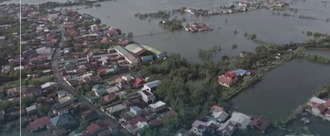
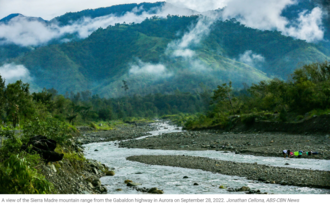
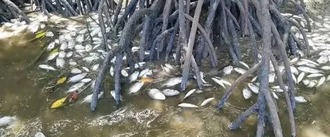
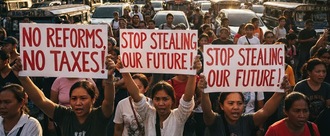
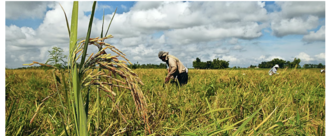
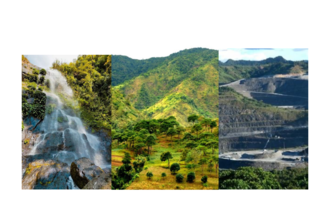
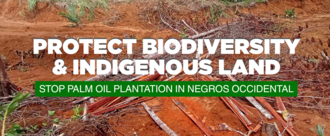.png)
